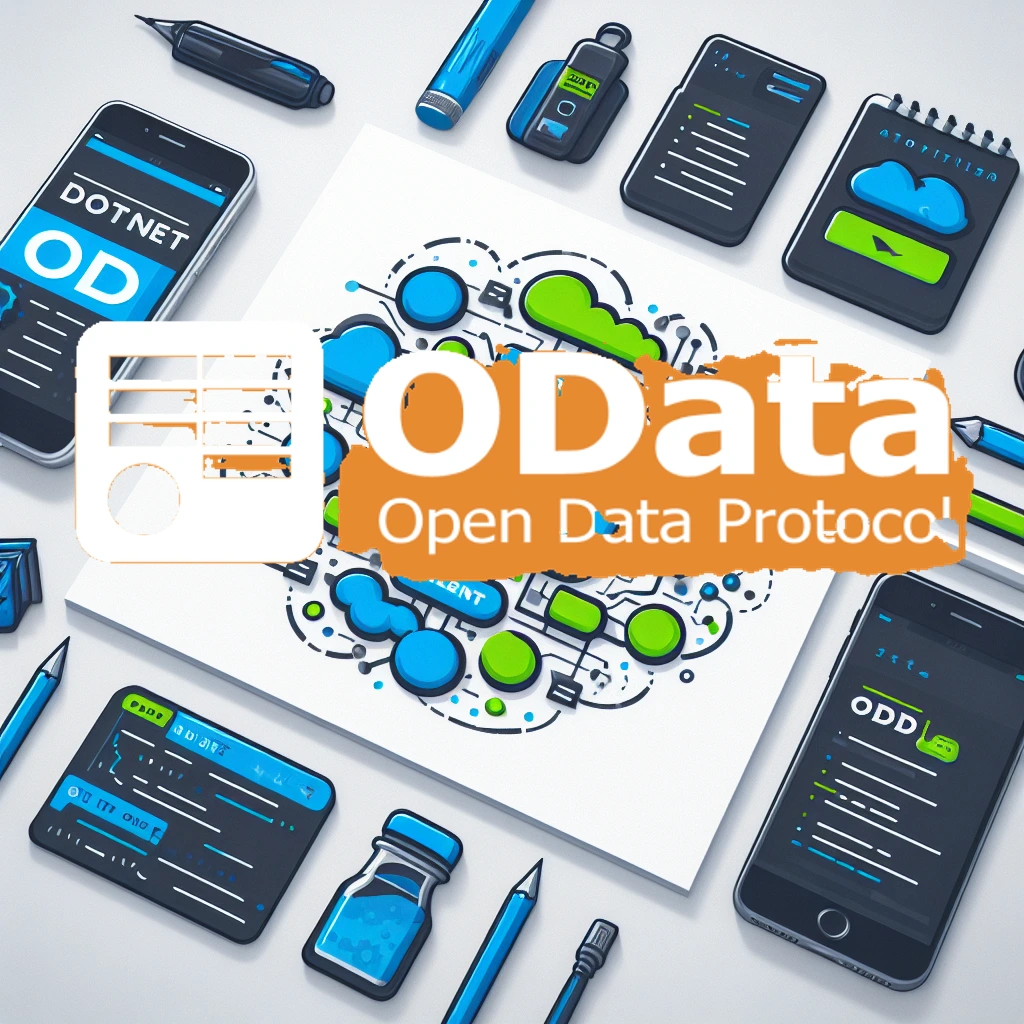Simple OData Client - Dotnet 8 and C#
Simple.OData.Client is a multi-platform OData client library supporting .NET 4.x, netstandard 2.0, Android, and iOS. The adapter provides a great alternative to the WCF Data Services client. It does not require the generation of context or entity classes and fits the RESTful nature of OData services.
Comparison with other techniques is available here
How to integrate in c#
- Add Simple.OData.Client NuGet package
1
2
3
dotnet add package Simple.OData.Client
- Create a model class, In this example we will be creating
People.cs
1
2
3
4
5
6
7
8
9
10
11
12
13
14
15
16
17
18
19
20
21
22
23
24
25
public class People
{
public string UserName { get; set; }
public string FirstName { get; set; }
public string LastName { get; set; }
public string MiddleName { get; set; }
public string Gender { get; set; }
public string Age { get; set; }
public List<string> Emails { get; set; }
public List<AddressInfo> AddressInfo { get; set; }
public AddressInfo HomeAddress { get; set; }
public long Concurrency => new();
}
public class AddressInfo
{
public string Address { get; set; }
public AddressCityInfo City { get; set; }
}
public class AddressCityInfo
{
public string Name { get; set; }
public string CountryRegion { get; set; }
public string Region { get; set; }
}
- In
Program.csAdd the following
1
2
3
4
5
6
7
8
9
10
11
12
13
14
15
16
17
18
using Simple.OData.Client;
public class Main
{
public static void Main(string[] s)
{
var baseUrl = "https://services.odata.org/V4/(S(y5tuj04bxbfsxzimbxbnauqg))/TripPinServiceRW/";
var client = new ODataClient(baseUrl);
var dataEnum = await _client
.For<People>("People")
.FindEntriesAsync();
var data = dataEnum.ToList();
}
}
- In case of Simple.OData.Client, the initial load time can be more, the library tries to fetch the metadata and use it for the validation later.
Official GitHub Repo. you can get the code here
Advantages of Simple OData Client
Simple OData Client is a straightforward and easy-to-use library that requires minimal coding compared to other OData clients. It provides a simplified API for basic OData operations, making it suitable for developers with limited OData experience.
Simple OData Client is a self-contained library that doesn’t require additional dependencies or third-party libraries. This makes it lightweight and portable, making it easy to integrate into existing projects.
Simple OData Client does not require OData metadata to function. It can parse and consume OData responses without the need for predefined metadata descriptions.
Simple OData Client provides a flexible data mapping mechanism that allows developers to customize how OData data is mapped to custom C# classes. This enables finer control over data representation and manipulation.
Simple OData Client supports various data providers, including OData services, Web APIs, and embedded data resources. This makes it versatile for connecting to different data sources.
Disadvantages of Simple OData Client
Simple OData Client is more limited in features compared to more comprehensive OData client libraries. It may lack support for advanced OData features, such as complex queries, batch operations, or custom service operations.
Simple OData Client requires manual parsing of OData responses to extract and process data. This can be more time-consuming and error-prone compared to libraries that automate this process.
The manual nature of Simple OData Client may reduce developer productivity compared to more streamlined libraries. Developers may need to invest more time in handling low-level details, hindering overall development efficiency.
Simple OData Client has a smaller community compared to more established OData client libraries. This may mean fewer resources available for troubleshooting and support.
Manual parsing and data manipulation in Simple OData Client introduce more opportunities for errors compared to libraries that handle these tasks automatically. Developers need to carefully handle and validate data to prevent issues.
Conclusion
In summary, Simple OData Client is a lightweight and easy-to-use library that is suitable for simple OData interactions. However, its limited features, manual parsing, and reduced developer productivity may make it less suitable for complex OData scenarios or projects with tight development timelines. For more advanced OData development, consider using other OData client libraries that offer a wider range of features and abstraction.
Other
If you want to explore your OData metadata, you can visit an open-source project created by me. By using this tool you can get the data types, enum values, and other useful information.
